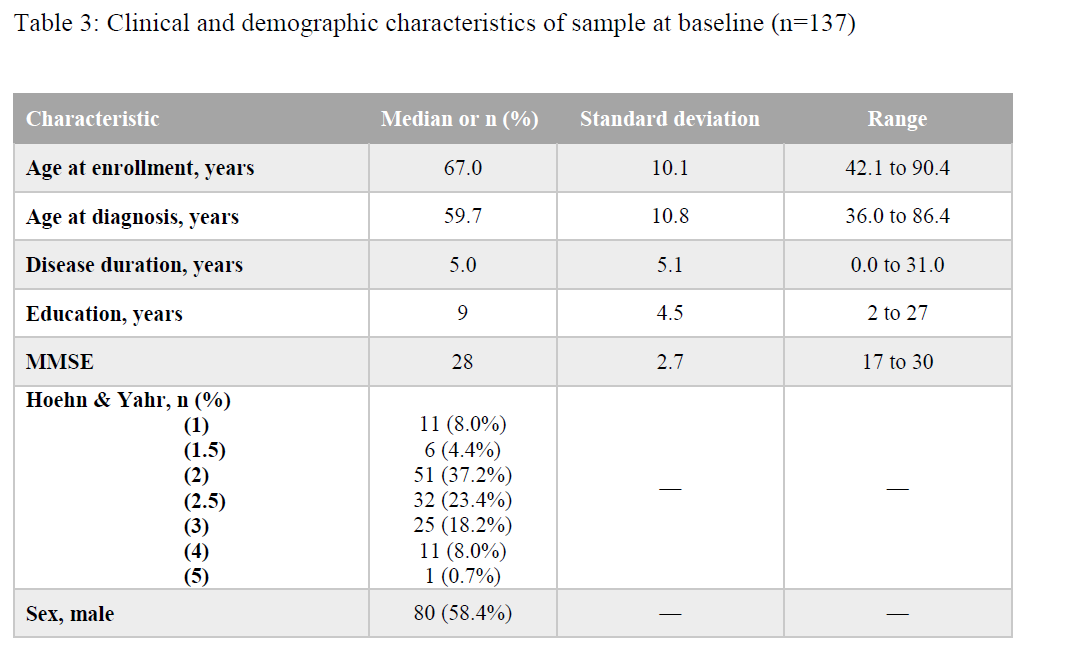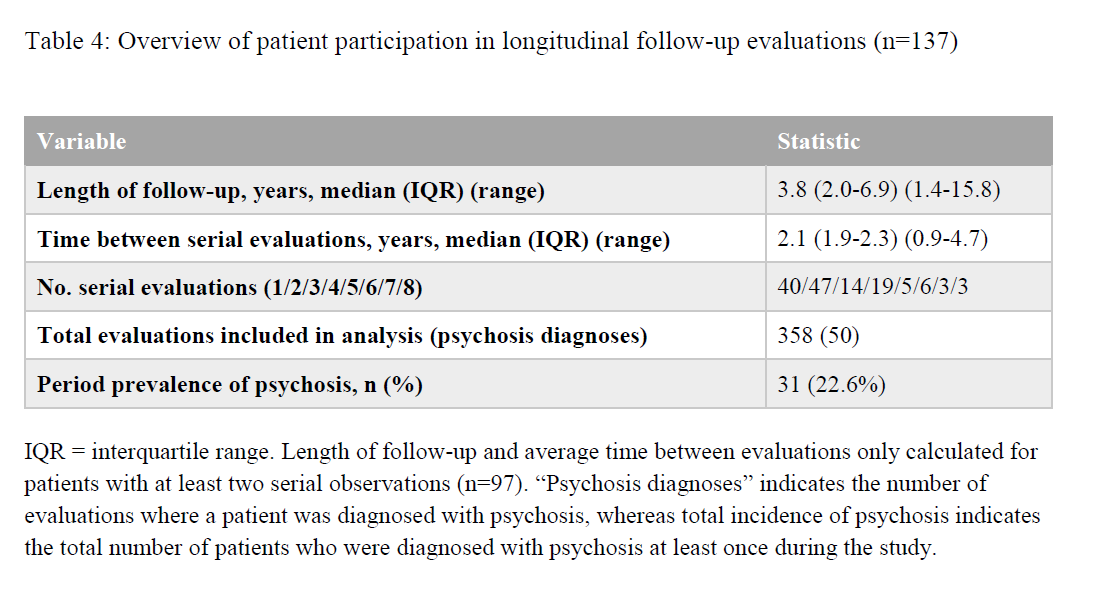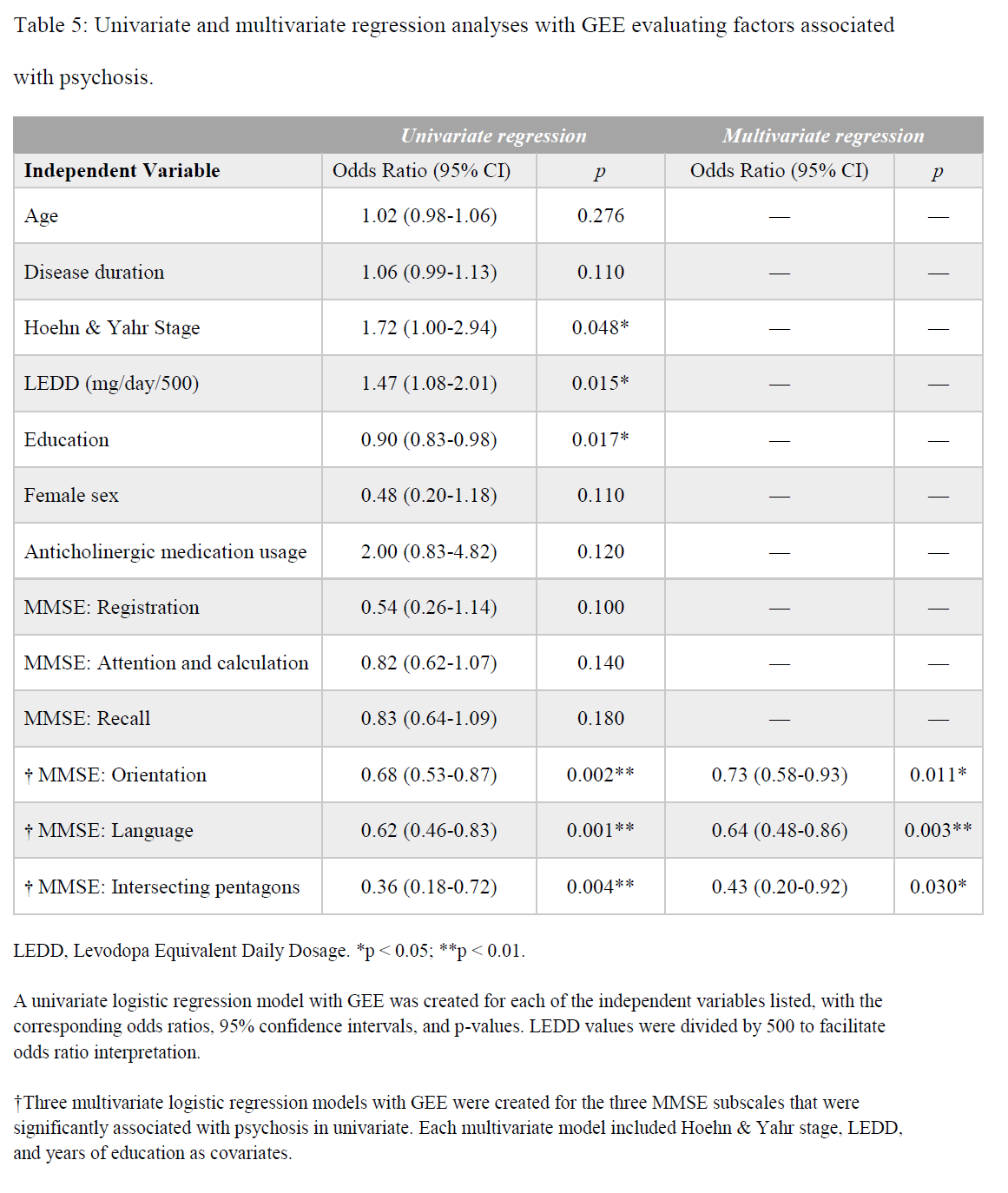Session Information
Date: Wednesday, June 7, 2017
Session Title: Parkinson's Disease: Psychiatric Manifestations
Session Time: 1:15pm-2:45pm
Location: Exhibit Hall C
Objective: Our objective was to determine whether psychosis in non-demented Parkinson’s disease (PD) patients is associated with domain-specific cognitive impairment on the Mini-Mental State Exam (MMSE).
Background: Cognitive impairment, an important and common complication of PD, has been associated with the presence of psychosis. Identifying the cognitive domains impaired among PD patients with psychosis is critical for understanding the pathophysiology of psychosis and may help guide treatment strategies.
Methods: We analyzed data from 137 patients enrolled in the Morris K. Udall Parkinson’s Disease Research Center of Excellence Longitudinal Study at Johns Hopkins University.Psychosis diagnoses were established by psychiatrist interview per DSM-IV criteria. Visits where patients were diagnosed with dementia were excluded from analysis. We used generalized estimated equations (GEE) to model the relationship between MMSE subscale scores and psychosis, adjusting for potential confounding variables identified through univariate analysis.
Results: Nineteen patients in our non-demented sample (13.9%) were diagnosed with psychosis at baseline and the cumulative prevalence of psychosis among non-demented patients in the study was 22.6% (31 patients). In univariate analyses of patients at baseline, disease duration (p = 0.042) and scores on the language (p < 0.001) and intersecting pentagon (p = 0.006) MMSE subscales were significantly associated with psychosis. In multivariate GEE analyses, psychosis was significantly associated with lower scores on the orientation (odds ratio: 0.73; 95% CI: 0.58-0.93; p = 0.011), language (odds ratio: 0.64; 95% CI: 0.48-0.86; p = 0.003), and intersecting pentagon (odds ratio: 0.43; 95% CI: 0.20-0.92 p = 0.030) subscales of the MMSE.
Conclusions: In PD, executive dysfunction, disorientation, and impaired language comprehension are associated with increased odds of psychosis, which could suggest cortical co-localization of these symptoms. Domain specific cognitive deficits assessed using the MMSE may be clinically useful for identifying PD patients at elevated risk for psychosis.
To cite this abstract in AMA style:
J. Hinkle, K. Perepezko, C. Bakker, T. Dawson, V. Johnson, Z. Mari, C. Marvel, K. Mills, A. Pantelyat, O. Pletnikova, L. Rosenthal, M. Shepard, D. Stevens, J. Troncoso, J. Wang, G. Pontone. Domain-Specific Cognitive Impairment in Non-Demented Parkinson’s Disease Psychosis [abstract]. Mov Disord. 2017; 32 (suppl 2). https://www.mdsabstracts.org/abstract/domain-specific-cognitive-impairment-in-non-demented-parkinsons-disease-psychosis/. Accessed February 13, 2026.« Back to 2017 International Congress
MDS Abstracts - https://www.mdsabstracts.org/abstract/domain-specific-cognitive-impairment-in-non-demented-parkinsons-disease-psychosis/



